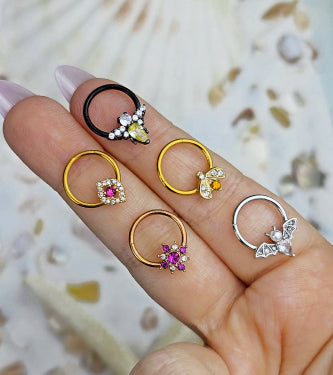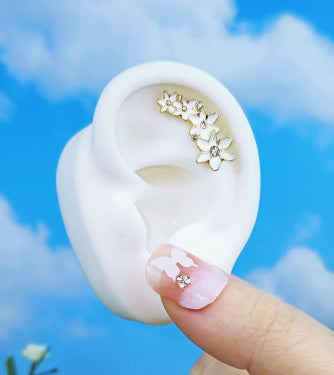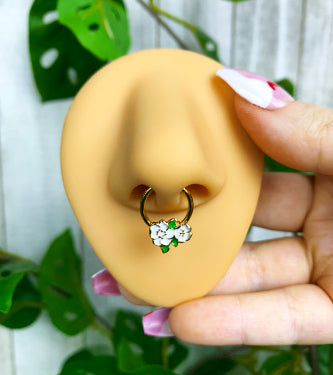Which jewelry material is right for you?
Some important things to know...
It is important to consider the pros and cons of different materials when choosing body jewelry. Factors to consider include cost, comfort, and potential for irritation or allergic reactions. Today we're talking about the pros and cons of each in hopes that we can help you find the right fit.
Stainless steel: A popular choice for body jewelry because it is very affordable. It is a very strong and durable material, stainless steel jewelry is built to last. It is resistant to tarnish, rust, and corrosion. It's low maintenance and can be easily cleaned with warm water and a mild soap.
Titanium: A more expensive option, but it is lightweight and hypoallergenic, making it a good choice for people with sensitive skin. Titanium comes in a wide range of colors (i.e. anodized titanium)
Gold: This is a more expensive option. It is a softer material and may be more prone to wear and tear, but some people prefer the aesthetic appearance of gold body jewelry. 14k and 18k gold are softer than surgical grade stainless steel or titanium, but they may be more comfortable for some people to wear due to it's non-irritating nature.
Acrylic: A lightweight (more comfortable) and affordable option. It is also hypoallergenic and non-porous, less likely to harbor bacteria. It's low maintenance & easy to clean.
Glass: is a unique and stylish choice, but it may be more fragile than other materials. It is very durable if cared for properly. It is also hypoallergenic and non-porous, thus less likely to harbor bacteria. Finally it is low maintenance & easy to clean.
Wood: A natural and organic option but it may be more prone to wear and tear. Wood is a lightweight (more comfortable) hypoallergenic material, so it is unlikely to cause irritation or allergic reactions
Miscellaneous: Other materials that may be used for body jewelry include plastic, ceramic, and stone.
Shop our Mini Store
















